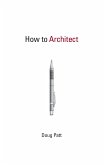"In their account of the design and history of the Belgian Friendship Building, a landmark of modernist architecture on the campus of Virginia Union University in Richmond, Kathleen James-Chakraborty, Katherine Kuenzli, and Bryan Clark Green tell a circuitous story spanning three continents and half a century. Originally constructed to serve as the Belgian Pavilion for the New York World's Fair of 1939-40, and one of only two surviving buildings from that exhibition, this large-scale prefabricated structure was designed by a group of architects under the direction of Henry van de Velde. It remained in the United States following the Nazi invasion of Belgium, when it was given to VUU by the Belgian government-in-exile to prevent its repatriation (and presumably its destruction). Its transportation to and reassembly on VUU's campus, and the dedication of its 161-foot tower to honor Robert L. Vann, an alumnus and pioneering editor of the Pittsburgh Courier, doubled the scale of the university's facilities and provided an important counterpoise to the statues on Monument Avenue. In this richly illustrated book, readers will learn about a modern albeit temporary structure that for eighty-plus years has towered over a city that historically embraced traditional architecture; a building whose expressed purpose, extolling European colonization, is seemingly incongruous at an HBCU whose faculty and students were in the vanguard of the civil rights movement in the 1960s; and a standing example of prewar modernism, eclipsing such lost landmarks as the Trylon and Perisphere, that has until now been all but forgotten in histories of American architecture"--
Hinweis: Dieser Artikel kann nur an eine deutsche Lieferadresse ausgeliefert werden.
Hinweis: Dieser Artikel kann nur an eine deutsche Lieferadresse ausgeliefert werden.








